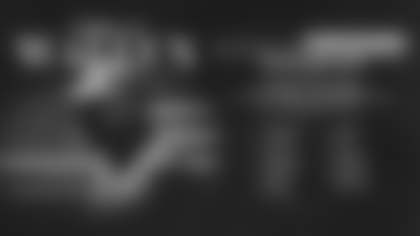Early Part of NFL Draft Typically Goes As Expected, Polian Says
INDIANAPOLIS – Early on, Bill Polian said there are few surprises.
Polian, in his 12th season as the Colts' president, said while the task that is preparing for and executing the NFL Draft is a wide-ranging, complex one if you consider every round and every selection, the early stage of the process is actually predictable.
Not unimant.
Not simple to understand.
And not easy for which to prepare.
Polian, long one of the NFL's premier evaluators of talent and one of its most-successful drafters, said preparation and adherence to a process is still key, but when it comes time for the first and even the second round to actually happen . . .
Well, he said there just aren't that many surprises. Not anymore.
"In the first round, it's obvious what a player is," Polian said as he prepared for the 2009 NFL Draft, which will be held April 25-26 at Radio City Music Hall in New York City.
Polian, preparing for his 12th draft with the Colts, has held a first-round selection entering 10 of his 11 previous drafts, with the lone exception being last year's draft when the team had traded the choice for the rights to select offensive tackle Tony Ugoh.
The Colts also traded out of the first round in 2004, selecting Bob Sanders in the middle of the second round.
That leaves nine first-round selections:
Peyton Manning. Edgerrin James. Rob Morris.
Reggie Wayne. Dwight Freeney. Dallas Clark.
Marlin Jackson. Joseph Addai. Anthony Gonzalez.
The players have been to a combined 21 Pro Bowls, and seven of the nine players played for the Colts' Super Bowl XLI team, the exceptions being James – a four-time Pro Bowl selection and the franchise's all-time leading rusher – and Gonzalez, selected three months after the Super Bowl.
And while countless mock drafters and analysts studying the draft often found the Colts' drafting unpredictable, Polian recently said two things are true:
• For those who actually do the drafting, the first-round is rarely a mystery.
• It usually doesn't play out as those doing the mocking predict.
"Our board doesn't often match what the gurus have," Polian said.
When Polian speaks to the media at the end of the first day of the draft each offseason, he often mentions there were few surprises, that the board went pretty much according to how the Colts' scouts expected.
He said while the analysts and "gurus" boards often differ from the actual draft, he said the differences between the Colts' predraft analyses and the actual first rounds are rare.
He said the reason for that is the teams have access to data that those performing mock drafts don't often possess. For that reason, he said, some players fall down the draft board. A players' declining stock may be a draft-day surprise, but Polian said it's often because of a factor about which league personnel officials already knew.
"The so-called 'fallers' didn't have that outstanding ability or had one major flaw," Polian said.
It's that information, he said, that has made what once was a process that might hold a draft-day surprise or two a relatively predictable procedure. At least on the first day, and at least to those closest to the decision-makers.
"I saw a study where you can argue that there is relative homogeneity in the first two rounds," Polian said. "Not who picks who, but how the players are taken, how they come off the board. The data is out there.
"You have to really work hard to ignore the data. There are very few exceptions anymore. Hardly ever. They almost go off in many ways almost exactly how you have them rated."














